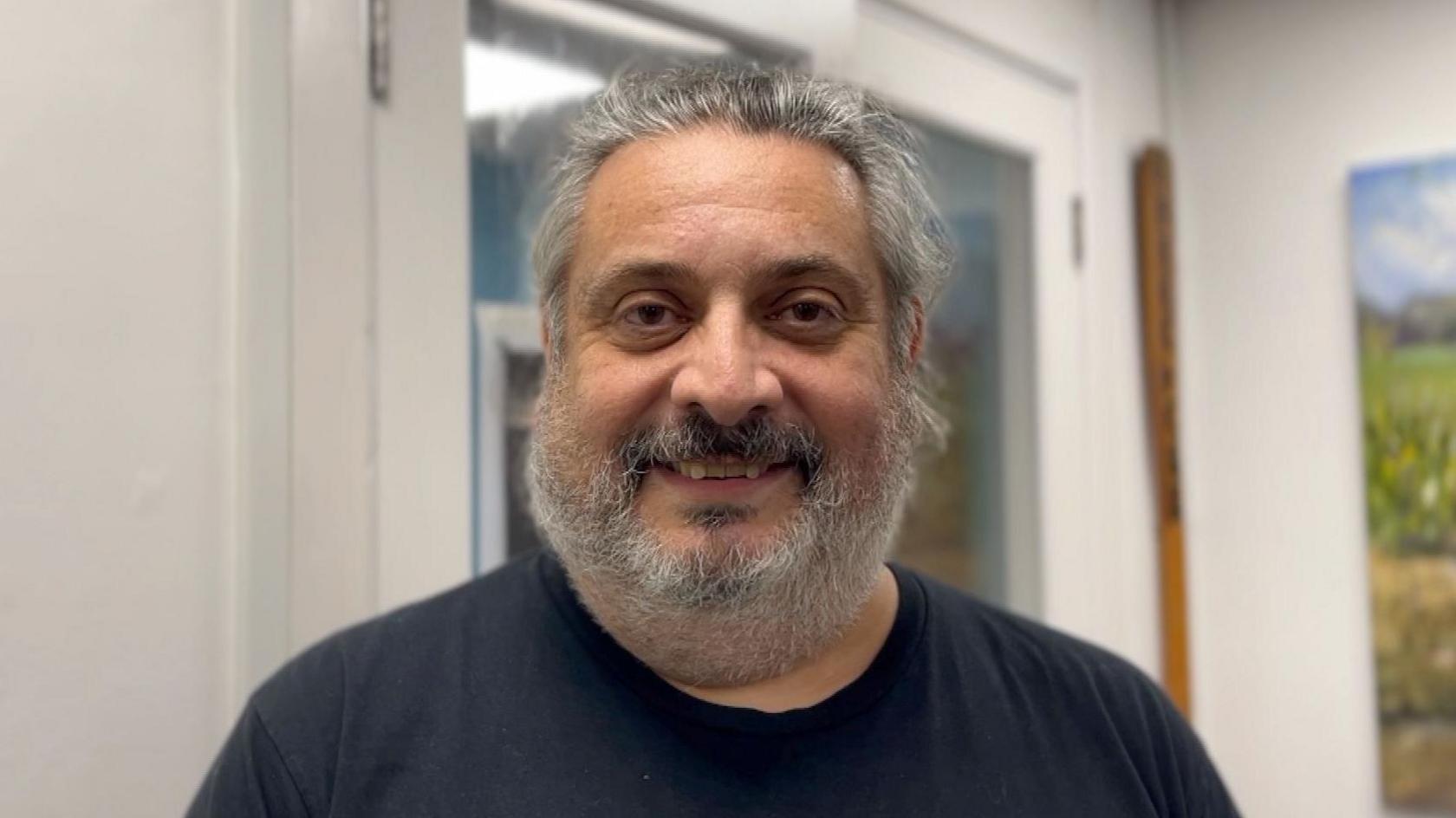Why men in Jersey struggle to ask GPs for help
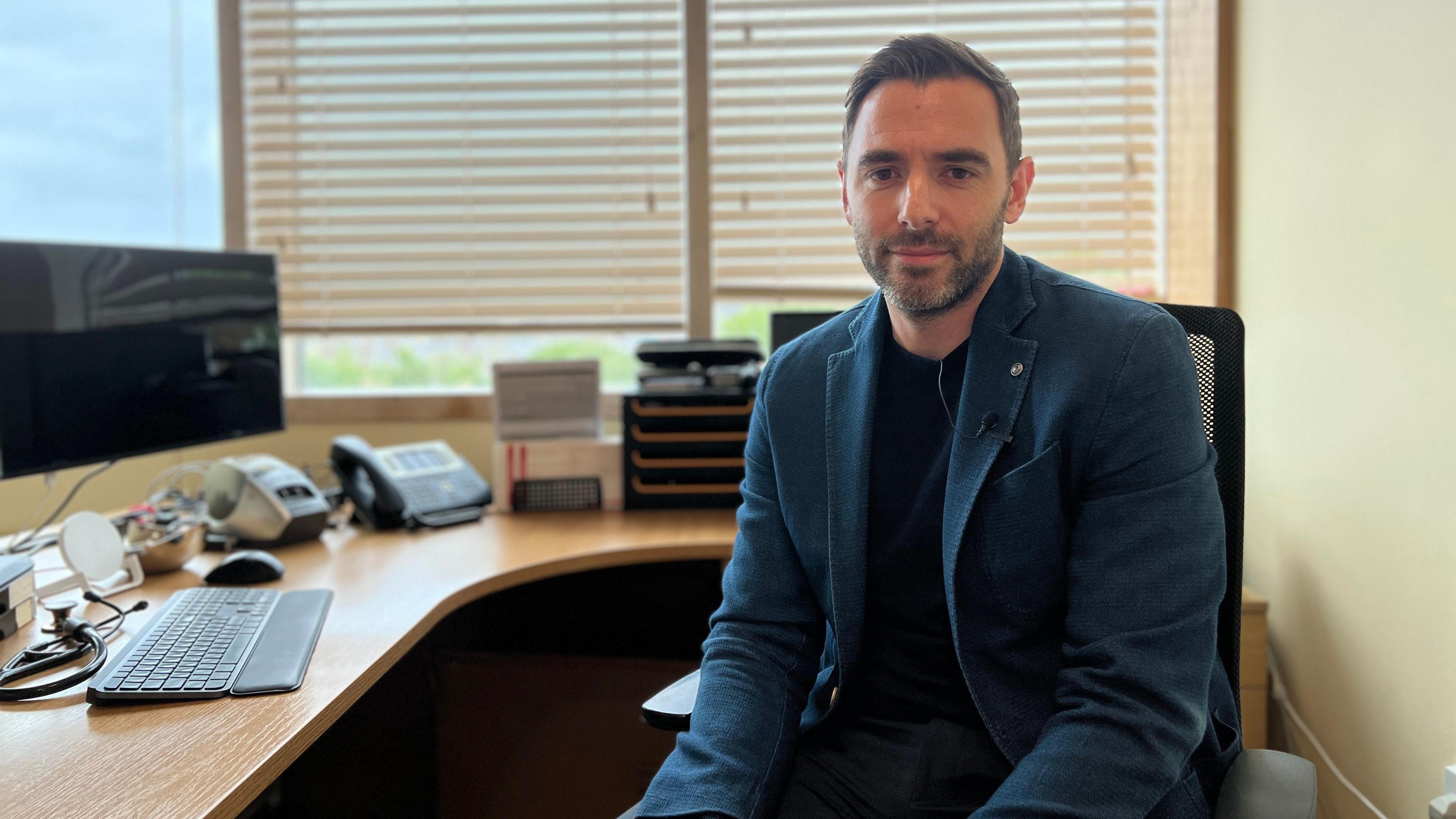
Dr Guillaume Besson says there are a range of factors that put men off from going to their GP
- Published
More than a decade ago, a report from the government showed on average 120 men a year were dying from preventable causes, compared to 70 women.
So have things improved since then, external?
Dr Guillaume Besson said he thought there was still a lot to do to help men reach out for help from doctors before it was too late.
He started the Men's Clinic at the Lido Medical Centre this year to provide specialist support for men and to help them with issues they might not feel comfortable speaking to others about.
Dr Besson said: "Men are really underrepresented when it comes to health... [many] find it difficult to come and see their doctor."
Men finding it difficult to visit their GP
He said range of reasons saw GP appointments put off, leading to later serious health problems.
Dr Besson added they had found "18% of men will not attend their GP because of privacy concerns" and "lots of men find it embarrassing to call up and say they need to book an appointment because of things like poor erections".
That is why patients submit contact forms online to the clinic, where they detail the reason for their appointment and only call to confirm the time.
He also said: "About half of men will have some form of sexual dysfunction, and things like poor erections can be a sign of heart disease."
"The main concern is that things fester, becoming harder to treat and high blood pressure and high cholesterol levels often don't have symptoms, and you only find out with a heart attack or stroke."
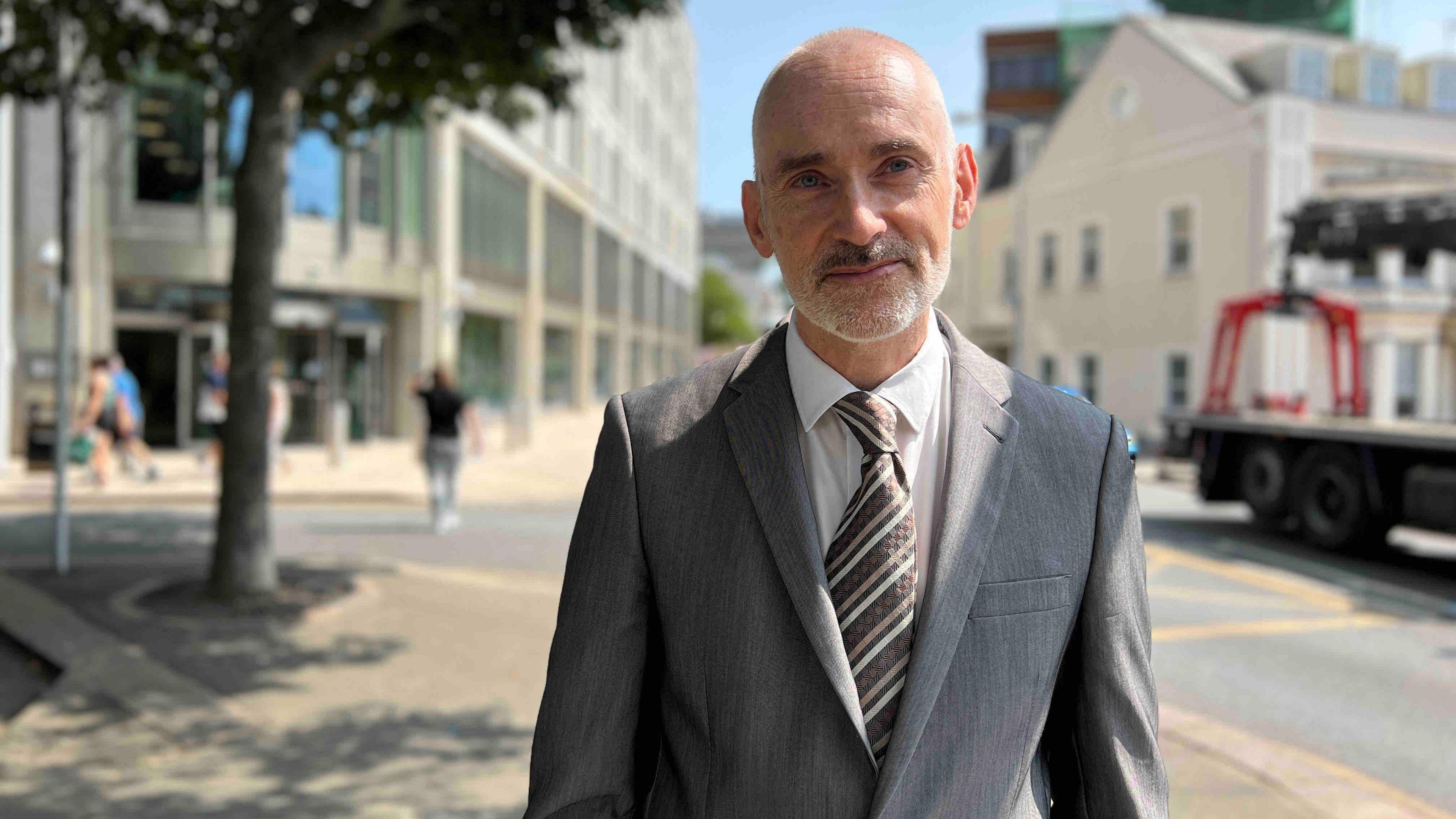
Professor Peter Bradley said many common chronic conditions are largely preventable
Figures from Public Health show that men often lived until the age of 80, but spent 17-and-a-half years in poorer health on average.
Director of Public Health Professor Peter Bradley said poorer health was caused by common conditions such as heart disease, cancer and diabetes and "they are largely preventable, so there really is a value in getting checked".
He added: "It's especially important when you get into your 40s to consider going to your GP or health provider and get some basic tests done, start thinking about your lifestyle and do that early on."
This has also been an issue raised in the States Assembly by the health minister this year when Deputy Tom Binet answered questions about inequalities in the health system.
He said "there are inequalities in mental health" and men are "twice as likely" to die from suicide than women in Jersey.
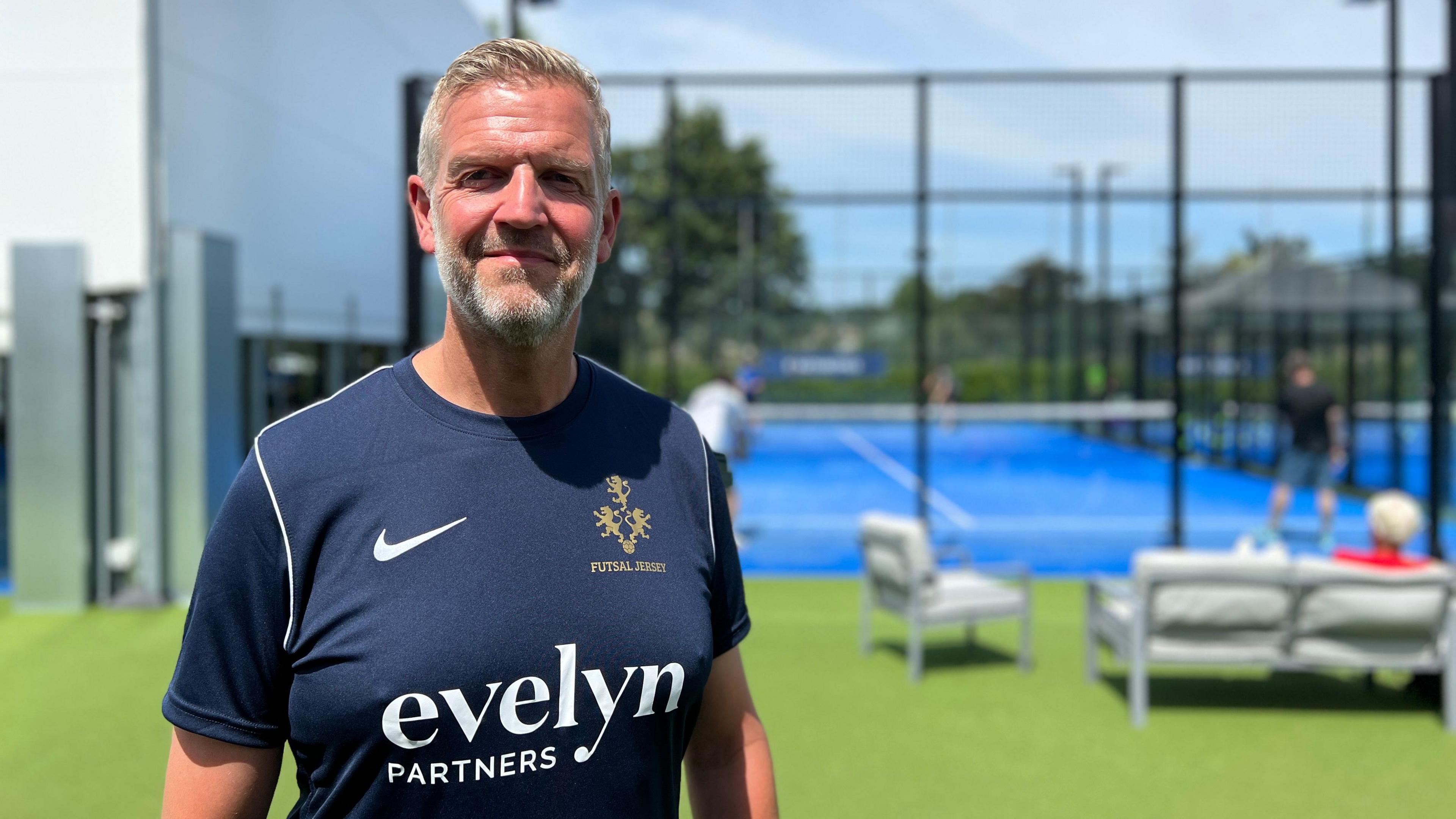
Matt Falla from Man Club says men are getting better but there is still more to do
Matt Falla started a mental health support group for men called Man Club, which has started a partnership with Island Padel to improve men's physical health as well.
He said mental and physical health were "intrinsically linked" and "Padel has a community aspect where you support each other which is a big help".
Mr Falla added: "We are much better at being open about our problems, but men still struggle to talk about things that don't have an obvious solution like health."
According to the ONS Health Insight Survey, external from February, commissioned by NHS England, 45.8% of women compared to just 33.5% of men had attempted to make contact with their GP practice for themselves or someone else in their household in the previous 28 days.
Follow BBC Jersey on X, external and Facebook, external. Send your story ideas to channel.islands@bbc.co.uk, external.
Related topics
- Published6 April
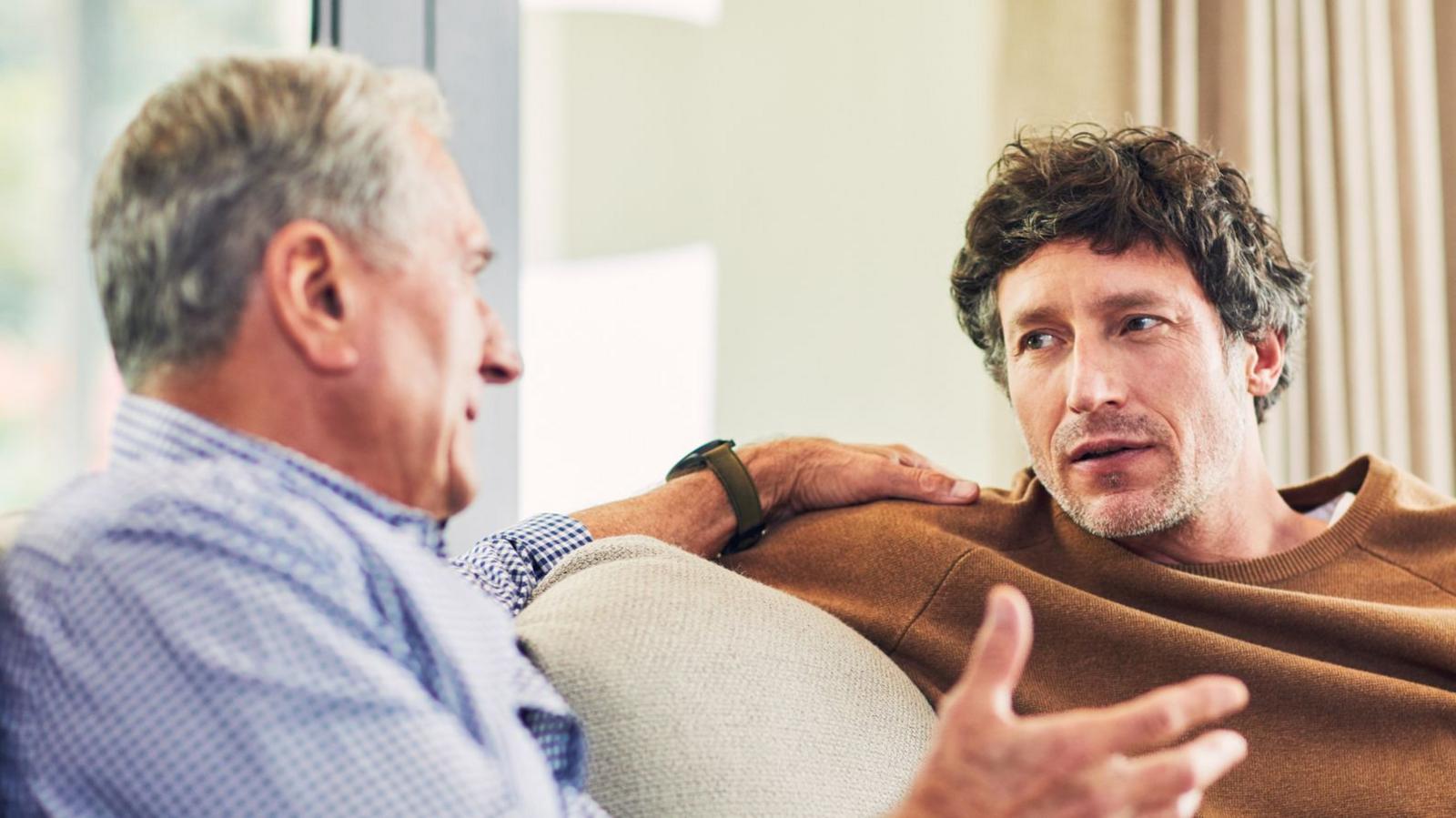
- Published6 December 2023
